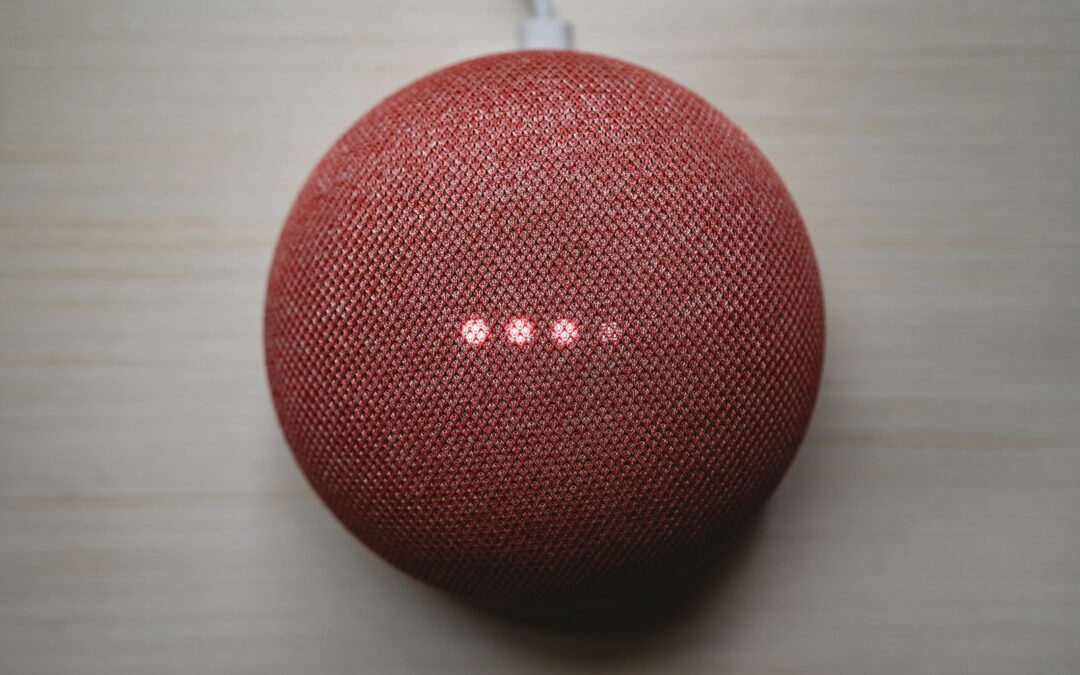Transforming Hospitality through Cutting-edge Technology
Introduction to Voice-activated Assistants in Smart Hotel Rooms
Voice-activated assistants in smart hotel rooms, such as Amazon Alexa and Google Assistant, are revolutionizing the hospitality industry. These advanced technologies enable guests to control room features, request services, and access information through simple voice commands. For business executives, mid-level managers, and entrepreneurs in the hospitality sector, understanding the potential of voice-activated assistants is crucial for staying competitive in modern technology-driven markets.
In regions like Saudi Arabia, the UAE, Riyadh, and Dubai, where tourism and business travel are flourishing, integrating voice-activated assistants into hotel rooms can significantly enhance the guest experience. These devices provide a seamless, hands-free interaction that allows guests to adjust room settings, such as lighting and temperature, request housekeeping, order room service, and even get recommendations for local attractions. This level of convenience not only improves guest satisfaction but also streamlines hotel operations, making it easier for staff to meet guest needs promptly and efficiently.
Moreover, the use of voice-activated assistants aligns with the broader trend of digital transformation in the hospitality industry. By adopting these technologies, hotels can position themselves as innovative and forward-thinking, appealing to tech-savvy travelers who expect a high level of digital integration in their accommodations.
Benefits of Voice-activated Assistants in Enhancing Guest Experience
The integration of voice-activated assistants in smart hotel rooms offers numerous benefits that enhance the overall guest experience. One of the primary advantages is the convenience and personalization these devices provide. Guests can customize their stay by setting preferences for room temperature, lighting, and entertainment options, all through simple voice commands. This level of personalization creates a more comfortable and enjoyable environment, which can lead to higher guest satisfaction and repeat bookings.
In addition to personalization, voice-activated assistants improve accessibility for guests with disabilities. These devices eliminate the need for physical interaction with room controls, making it easier for guests with mobility issues to manage their environment. For example, a guest can adjust the thermostat, turn on the TV, or request extra towels without having to leave their bed. This inclusive approach ensures that all guests, regardless of their physical abilities, can enjoy a seamless and comfortable stay.
Furthermore, voice-activated assistants can serve as virtual concierges, providing guests with instant access to hotel services and local information. Guests can inquire about hotel amenities, book spa appointments, or ask for directions to nearby attractions without having to call the front desk. This not only enhances the guest experience by providing immediate assistance but also reduces the workload on hotel staff, allowing them to focus on more complex tasks that require personal attention.
Implementing Voice-activated Assistants in Hotels
Implementing voice-activated assistants in hotel rooms requires a strategic approach to ensure a seamless integration that enhances the guest experience. The first step is selecting the right voice-activated assistant that aligns with the hotel’s brand and guest preferences. Amazon Alexa and Google Assistant are two popular choices, each offering a range of features that can be customized to meet the specific needs of the hotel and its guests.
Once the appropriate device is selected, the next step is to configure it to interact with various room features and hotel services. This involves setting up the devices to control lighting, temperature, and entertainment systems, as well as integrating with the hotel’s property management system to handle service requests and provide information. It is essential to ensure that the devices are user-friendly and intuitive, with clear instructions available for guests who may be unfamiliar with voice-activated technology.
Training staff to manage and troubleshoot the devices is also crucial for a successful implementation. Hotel employees should be well-versed in the capabilities and limitations of the voice-activated assistants, enabling them to assist guests with any issues that may arise. Additionally, staff should be trained to leverage the data collected by these devices to improve service delivery and enhance the overall guest experience.
Challenges and Solutions in Adopting Voice-activated Assistants
While the benefits of voice-activated assistants in smart hotel rooms are clear, there are several challenges that hotels must address to ensure a successful adoption. One of the primary concerns is privacy and data security. Voice-activated assistants collect and process significant amounts of personal data, raising concerns about guest privacy. To mitigate these risks, hotels must implement robust data security measures, such as encryption and secure authentication protocols, to protect guest information.
Another challenge is ensuring the reliability and functionality of the devices. Technical issues, such as connectivity problems or device malfunctions, can negatively impact the guest experience. To address this, hotels should invest in high-quality hardware and maintain a reliable internet connection to support the devices. Regular maintenance and updates are also essential to ensure the devices operate smoothly and efficiently.
Additionally, some guests may be hesitant to use voice-activated assistants due to concerns about privacy or unfamiliarity with the technology. To overcome this, hotels should provide clear instructions and reassurances about the security measures in place. Offering alternative methods for accessing hotel services, such as traditional phone calls or mobile apps, can also accommodate guests who prefer not to use voice-activated devices.
The Future of Voice-activated Assistants in Hospitality
The future of voice-activated assistants in the hospitality industry looks promising, with continuous advancements in technology driving innovation. One emerging trend is the integration of Artificial Intelligence (AI) and machine learning into these devices, enabling them to offer more personalized and context-aware services. For example, AI-powered assistants can learn from guest interactions to provide tailored recommendations and anticipate needs, further enhancing the guest experience.
Another trend is the expansion of voice-activated capabilities beyond the hotel room. In the future, guests may be able to use voice commands to interact with hotel facilities, such as booking conference rooms, accessing fitness centers, or ordering food and beverages at hotel restaurants. This holistic integration of voice-activated technology can create a more cohesive and immersive guest experience.
Moreover, as smart city initiatives gain momentum in regions like Saudi Arabia and the UAE, voice-activated assistants in hotel rooms can play a crucial role in connecting guests with local services and attractions. For instance, guests can use these devices to access real-time information about public transportation, weather updates, and local events, making their stay more convenient and enjoyable.
Conclusion: Embracing Voice-activated Assistants for Business Success
In conclusion, the integration of voice-activated assistants in smart hotel rooms presents a significant opportunity for the hospitality industry to enhance guest experience and streamline operations. By adopting this advanced technology, hotels can provide a more personalized, accessible, and convenient stay for their guests, leading to higher satisfaction and increased revenue. For business executives, mid-level managers, and entrepreneurs in the hospitality sector, embracing voice-activated assistants is essential for staying competitive in a rapidly evolving market.
As the technology continues to advance, the potential applications of voice-activated assistants in hospitality will expand, offering even more opportunities to improve service delivery and guest satisfaction. By staying ahead of these trends and investing in innovative solutions, hotels in Saudi Arabia, the UAE, Riyadh, and Dubai can enhance their competitive edge and achieve long-term business success.
—
#VoiceActivatedAssistants #SmartHotelRooms #AmazonAlexa #GoogleAssistant #GuestExperience #HospitalityTechnology #SaudiArabia #UAE #Riyadh #Dubai #ArtificialIntelligence #ModernTechnology #BusinessSuccess #LeadershipSkills #ManagementSkills #ProjectManagement























